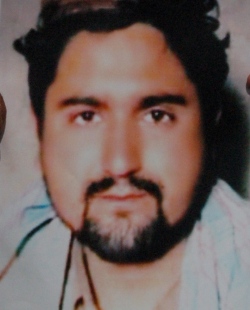
Afghan journalist Ajmal Nakshbandi killed by captors
Reading time: (Number of words: )
The Committee to Protect Journalists is deeply saddened by the brutal murder of Afghan journalist Ajmal Nakshbandi.
Several Taliban spokesmen told media organizations in Kabul that the group had beheaded Naqshbandi in the Garmsir district of Helmand province Sunday afternoon, after the Afghan government refused to release senior Taliban leaders in captivity.
“The death of Ajmal Nakshbandi is a bitter reminder of the vulnerability of local journalists who cover conflicts in their own country,” said CPJ Executive Director Joel Simon. “The world relies on these journalists to gather news in dangerous areas, and they often pay with their lives.”
Naqshbandi was abducted on March 4 with La Repubblica reporter Daniele Mastrogiacomo and the group’s driver Sayed Agha in Helmand province. Agha was beheaded a few days after the abduction, while the Italian Mastrogiacomo was released March 19 in exchange for five Taliban prisoners.
Afghan President Hamid Karza was criticized for having made the deal. He said he did so because Italy has 1,800 troops in Afghanistan and because Italian Prime Minister Romano Prodi had personally asked him to work for the release, according to international media reports.
Nearly 300 journalists had signed CPJ’s open letter urging the release of Nakshbandi, including CNN, The Associated Press, Reuters, Time, The New York Times, USA Today, NBC, ABC, and Al-Jazeera.

Poems for the Hazara
The Anthology of 125 Internationally Recognized Poets From 68 Countries Dedicated to the Hazara
Order Now








